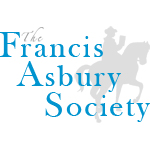By Rachel Coleman
Luke 18:9-14; Psalm 65
We often make snap judgments about people, based on our observations of their external presentation, including their posture. Slumping shoulders convey to us lack of hope or lack of initiative; we perceive in someone’s upright bearing a sense of confidence and capability. In Luke 18, Jesus tells a story that illustrates some things about “spiritual posture,” and what God sees when he observes our prayer posture.
Jesus calls the two characters in his story “a Pharisee” and “a tax collector.” Both of those designations, by their foreignness to our own context, can insulate us from placing ourselves within the story. It’s easy to hear the story and assign its relevance to someone else. So, to avoid that trap, we’ll call the first man “a good religious man, an upright citizen” and the second, “a businessman of questionable ethical practices.”
Scene #1: “I’m OK, you’re definitely not OK!” The first character to come on stage, the good, religious man who stands tall and confident in his prayer posture, is plainly the representative within the story of Jesus’ target audience. Verse 9 tells us that Jesus crafted this parable for “certain ones who had confidence in themselves.” These folks, represented by the first man in the story, were convinced of two things. First, they were absolutely certain of their own righteousness and rightness. That conviction led them to their second conclusion: that all those who didn’t “measure up” to their standards were worthy of contempt. These folks clearly lived in a world of “us vs. them,” whose refrain was: “We’re OK, you’re definitely not OK!”
This is succinctly illustrated in the first man’s prayer, both by his words and by his non-verbal communication. Standing by himself, wrapped in an insulating blanket of self-assurance, he opened his mouth: “Oh God, I thank you that I’m not like the rest of people!” That all-encompassing attitude of disdain assumes that the “them” group must surely all be grasping, unrighteous, adulterous sinners, exemplified by “this unscrupulous businessman” who was daring to approach the altar within his line of vision. A 21st-Century preacher paraphrases this man’s words with sharp relevance: “O Lord, I thank thee that I am not like other people: my next-door neighbor who is enjoying a round of golf right now instead of attending worship; my friend in the other political party who does not understand your will for our nation; or even that scruffy-looking truck driver sitting two pews over. I am here every Sunday morning and Wednesday evening; I pledge faithfully to missions; I serve on three important church committees; and I even tithe!” (From Feasting on the Word)
Who or what would be on your checklist?
